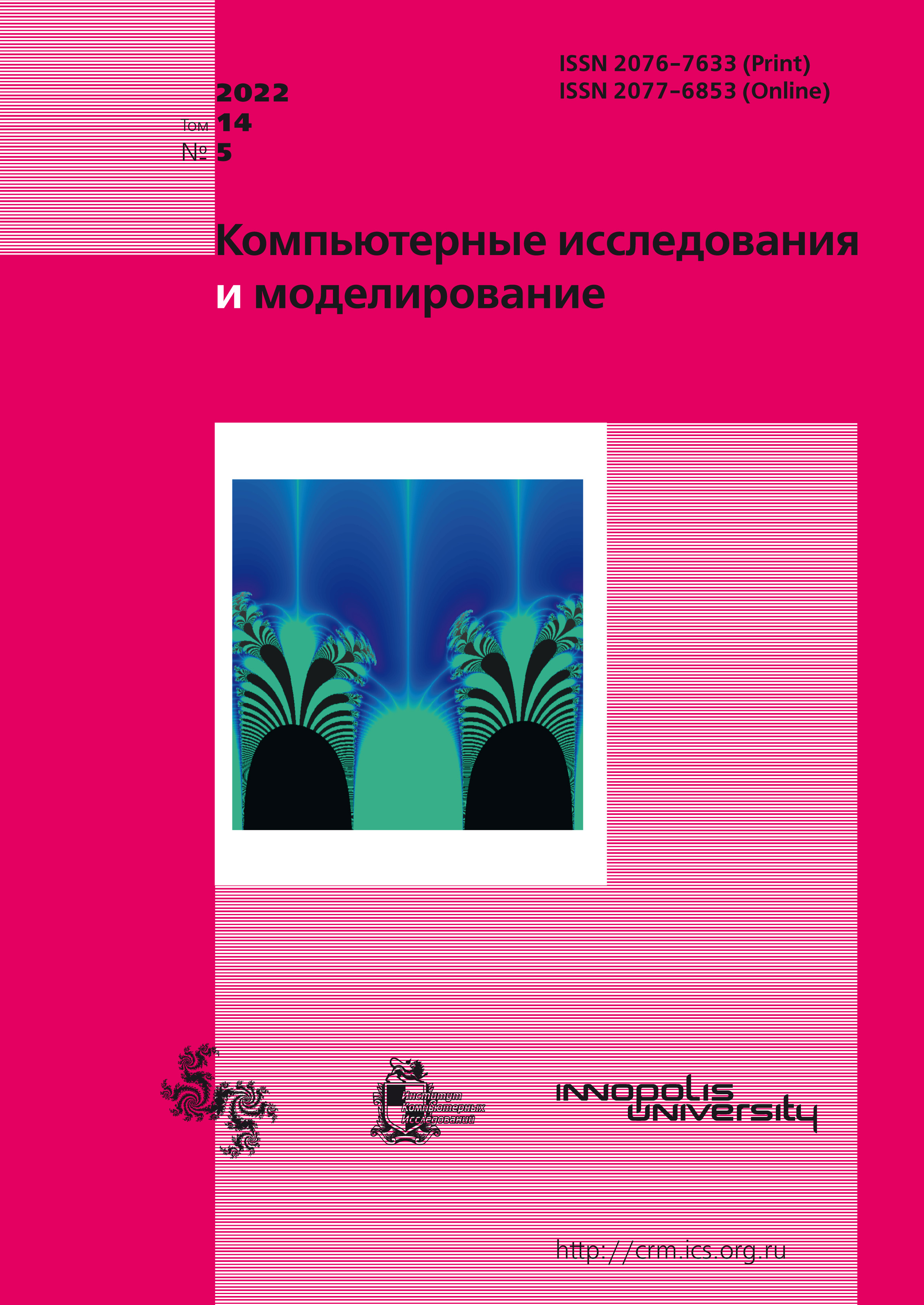All issues
- 2025 Vol. 17
- 2024 Vol. 16
- 2023 Vol. 15
- 2022 Vol. 14
- 2021 Vol. 13
- 2020 Vol. 12
- 2019 Vol. 11
- 2018 Vol. 10
- 2017 Vol. 9
- 2016 Vol. 8
- 2015 Vol. 7
- 2014 Vol. 6
- 2013 Vol. 5
- 2012 Vol. 4
- 2011 Vol. 3
- 2010 Vol. 2
- 2009 Vol. 1
The agent model of intercultural interactions: the emergence of cultural uncertainties
 pdf (1271K)
pdf (1271K)
The article describes a simulation agent-based model of intercultural interactions in a country whose population belongs to different cultures. It is believed that the space of cultures can be represented as a Hilbert space, in which certain subspaces correspond to different cultures. In the model, the concept of culture is understood as a structured subspace of the Hilbert space. This makes it possible to describe the state of agents by a vector in a Hilbert space. It is believed that each agent is described by belonging to a certain «culture». The number of agents belonging to certain cultures is determined by demographic processes that correspond to these cultures, the depth and integrity of the educational process, as well as the intensity of intercultural contacts. Interaction between agents occurs within clusters, into which, according to certain criteria, the entire set of agents is divided. When agents interact according to a certain algorithm, the length and angle that characterize the state of the agent change. In the process of imitation, depending on the number of agents belonging to different cultures, the intensity of demographic and educational processes, as well as the intensity of intercultural contacts, aggregates of agents (clusters) are formed, the agents of which belong to different cultures. Such intercultural clusters do not entirely belong to any of the cultures initially considered in the model. Such intercultural clusters create uncertainties in cultural dynamics. The paper presents the results of simulation experiments that illustrate the influence of demographic and educational processes on the dynamics of intercultural clusters. The issues of the development of the proposed approach to the study (discussion) of the transitional states of the development of cultures are discussed.
Copyright © 2022 Belotelov N.V., Loginov F.V.
Indexed in Scopus
Full-text version of the journal is also available on the web site of the scientific electronic library eLIBRARY.RU
The journal is included in the Russian Science Citation Index
The journal is included in the RSCI
International Interdisciplinary Conference "Mathematics. Computing. Education"






